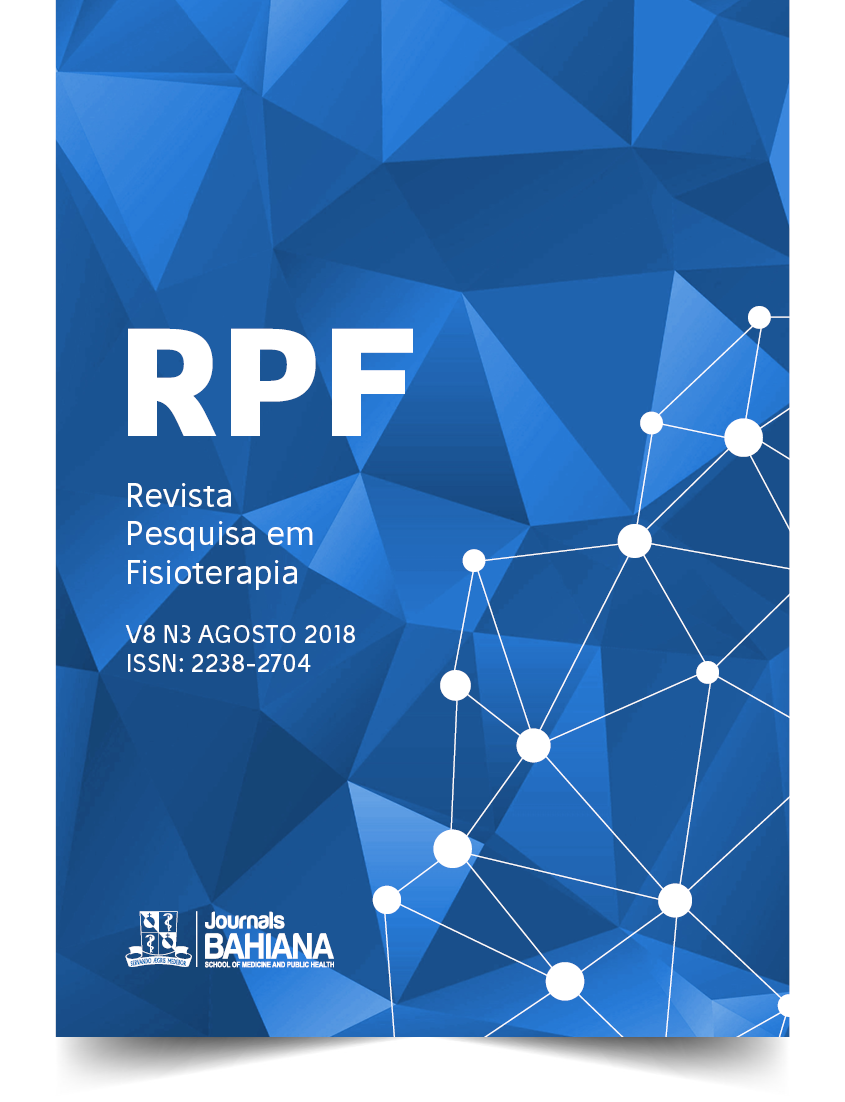Capacidade funcional e força muscular de indivíduos internados em uma unidade de terapia intensiva cirúrgica
DOI:
https://doi.org/10.17267/2238-2704rpf.v8i3.2048Palavras-chave:
Força muscular. Unidade de terapia intensiva. Atividades de vida diária. Período pós-operatório. Avaliação física.Resumo
INTRODUÇÃO: Pacientes pós-cirúrgicos podem apresentar redução da capacidade funcional e força muscular devido as complicações pós-operatórias ou do internamento hospitalar. Porém, até o momento pouco se sabe sobre o estado funcional de indivíduos internados na Unidade de Terapia Intensiva (UTI) cirúrgica. OBJETIVO: Verificar a força muscular periférica e a capacidade funcional de indivíduos no pós-operatório internados em uma UTI cirúrgica. MÉTODOS: Estudo transversal, descritivo, do qual participaram 72 pacientes admitidos na UTI cirúrgica com idade ?18 anos, de ambos os sexos, no período pós-operatório. Os critérios de exclusão foram os casos onde os pacientes estivessem: hemodinamicamente instáveis, com desordem cognitiva ou com comunicação limitada que comprometesse a acurácia do registro de dados e aqueles que se recusaram a participar da pesquisa. A avaliação da capacidade funcional foi realizada através da medida de independência funcional, a força muscular através do Medical Research Council. RESULTADOS: A média de idade 51.2 ± 19 anos, sendo 35 (46,8%) do sexo feminino. A média da capacidade funcional foi 95,7 ± 21,3, sendo que 40 (55,6%) dos pacientes apresentaram dependência modificada (assistência de até 25% das tarefas) e 28 (38,9%) independência completa/modificada. A mediana da força muscular periférica foi 58 (48-60). A mediana do tempo de permanência na UTI foi 4 (2-7) dias. O tempo de permanência na ventilação mecânica foi de 24 horas para a maioria dos indivíduos 46 (63,9%). CONCLUSÃO: A força muscular periférica dos pacientes internados em UTI cirúrgica no pós-operatório não foi encontrada alterada. No entanto, grande parte dos pacientes apresentaram limitações funcionais.



